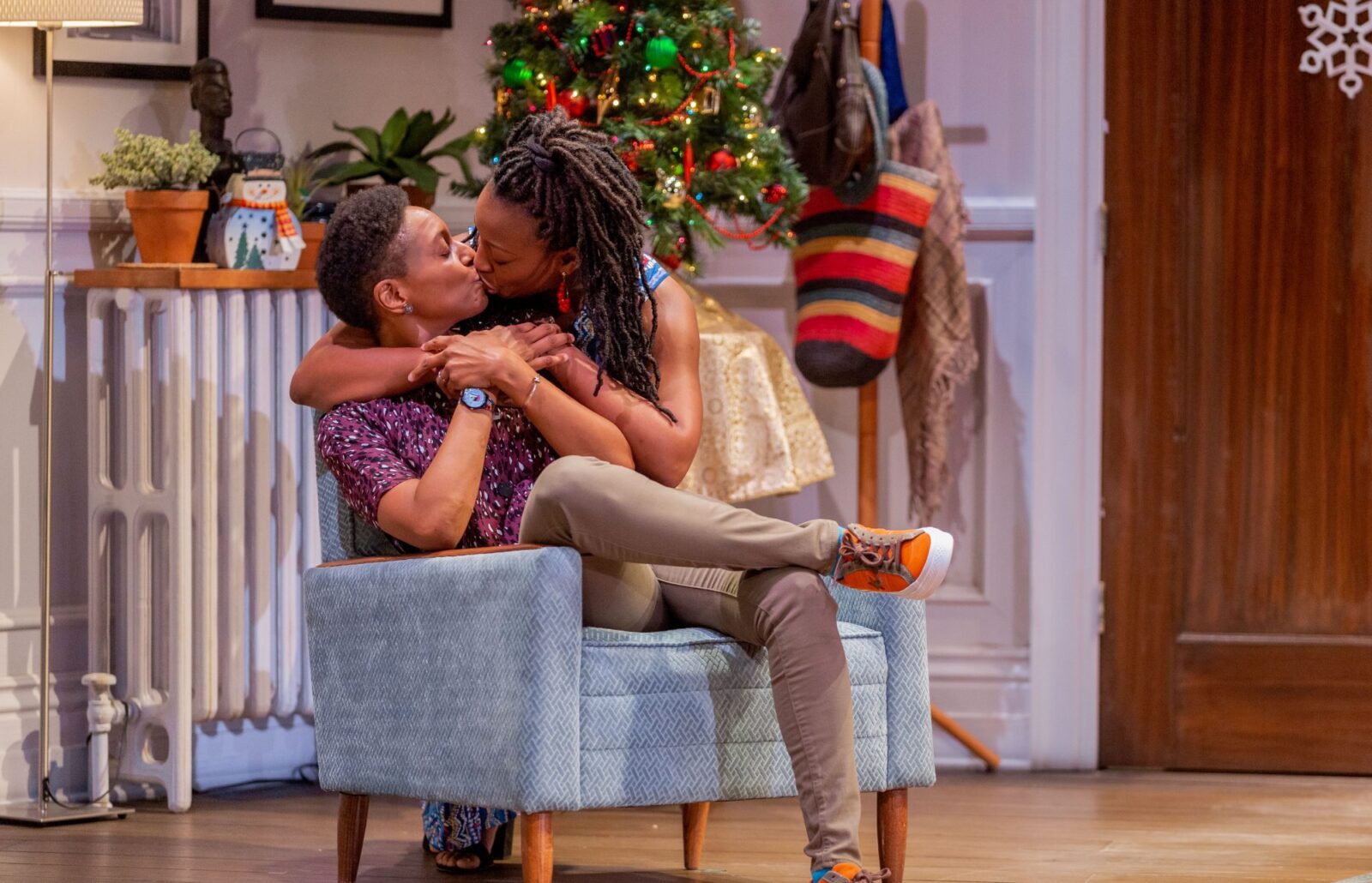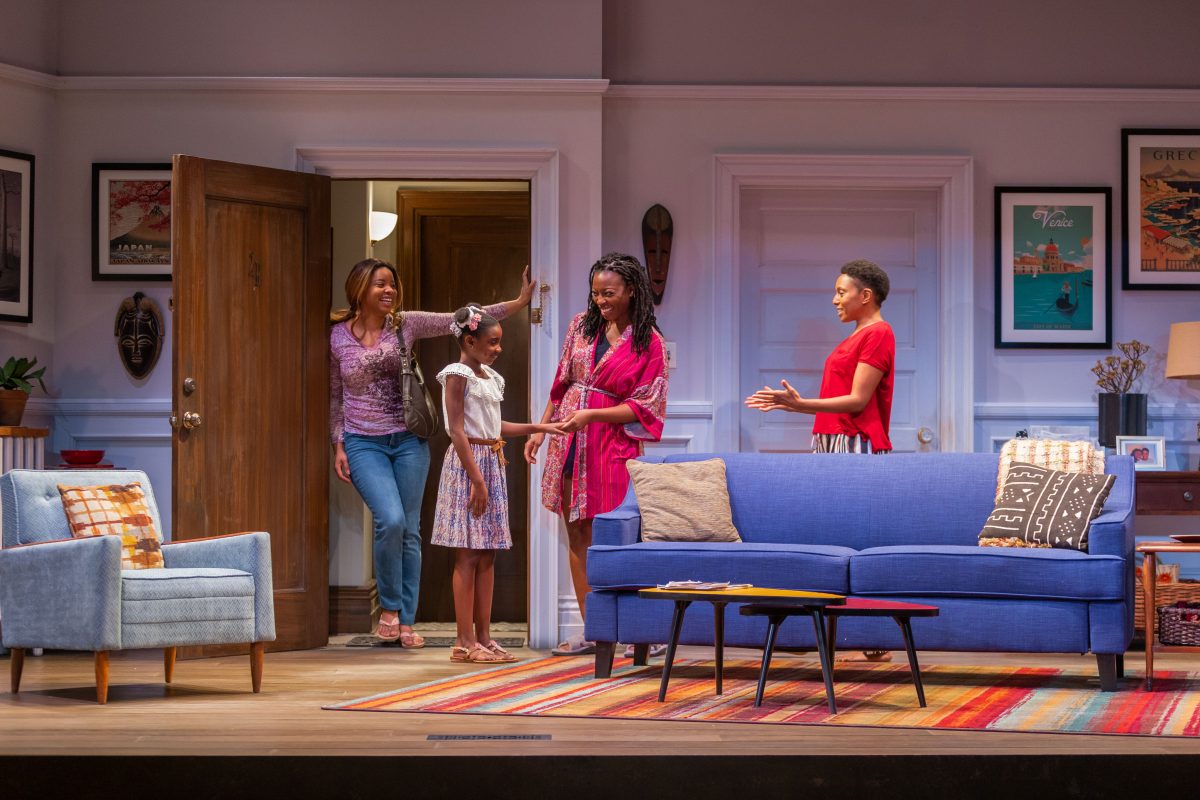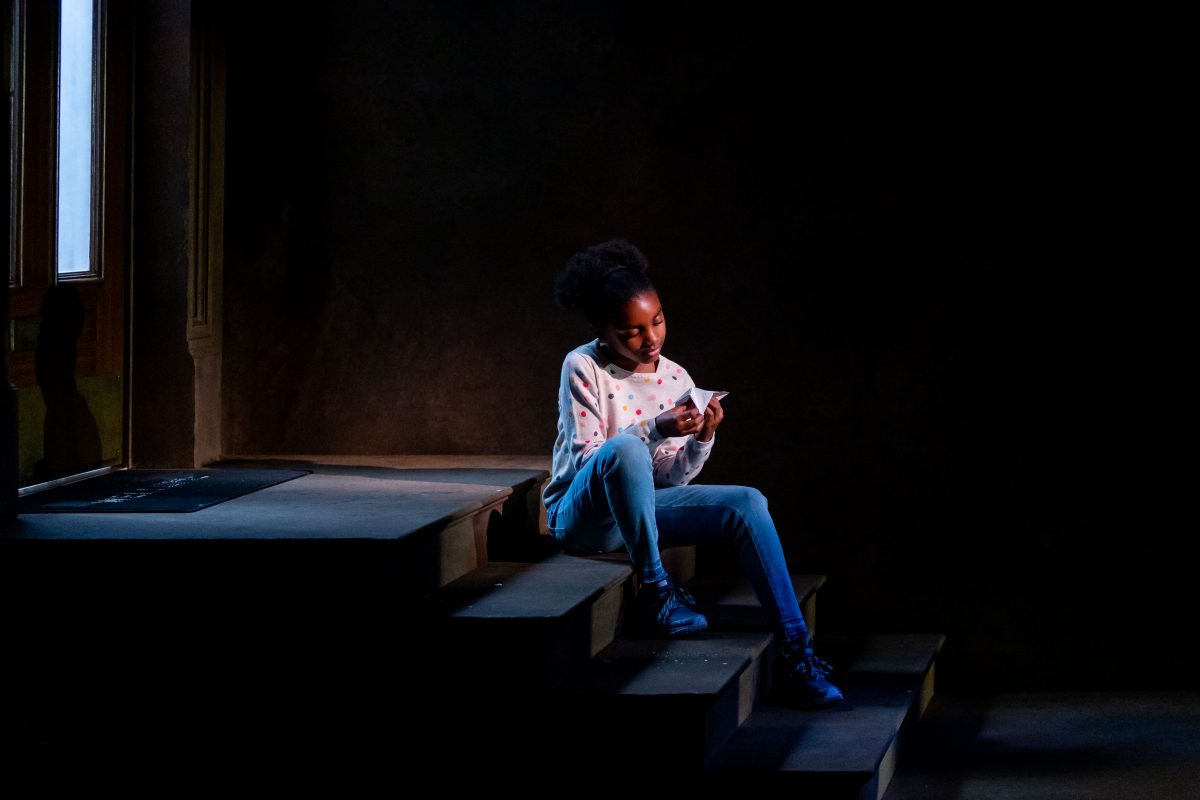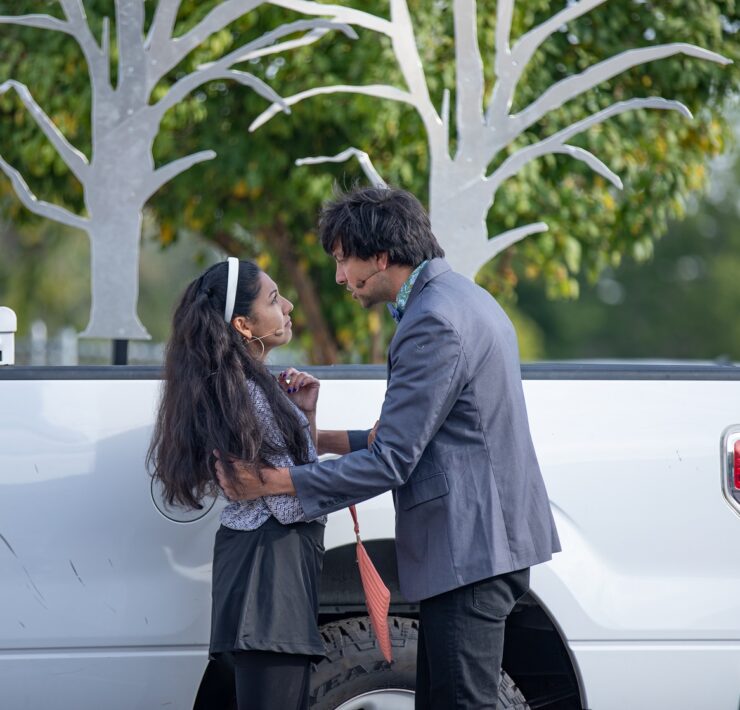‘Last Night and the Night Before’ Tackles Cultural and Queer Issues

Addison Herron-Wheeler is OUT FRONT's co-publisher and editor-in-chief and friend…
The theatre is a major gathering space for the queer community, but so often, the plays we go to see focus mainly on straight, white, affluent life. When they do have queer themes, they are normally themes that cater mostly to white, cis men. Last Night and the Night Before wants to change all that.
The play tells the story of two black lesbians in New York and how their comfy lives are upended when a sister and her daughter come to town. Playwright Donnetta Lavinia Grays wanted to tell a story about black women, lesbians, and Southerners, and she didn’t want to hold anything back or coddle her audience.
“This play is going to be hella southern; it’s real black; I say the things that I say, and I don’t apologize for them,” she told us.
In anticipation of checking out the show ourselves, we spoke to Grays about the play, what we can expect, and why telling this story is so important.

This play has a lot of big themes; how did you get the idea for writing it? What is behind it?
I was writing this other play called “The Revue, or How to Eat Your Opposition,” and it was a very cerebral play about art, art criticism, and life in New York post-9/11, so it was big. I don’t write little, tiny thematic plays. It’s layers upon layers. That came from a world I had to do a lot of research on. I had to shape the characters a little bit outside myself.
I wanted to explore something that was special to me and from my heart. I started writing a scene just with the music of the folks I grew up with, and ended up writing myself into a corner. Thats how it started; it went from a head play to a heart play. I got some friends together, like two weeks into writing that thing, and I told a director friend of mine, ‘I think I’m writing a play; can we get actors together and just read the first act? So we all sat around; I rented a meeting spot, and the readers said, ‘Oh, I think something’s here,’ and we reconvened a few weeks later when I had a second act.
Lesbian inclusion is a huge part of this play. Why is that important, and how are these issues addressed in the story?
I wrote what I know, just as a point of existence; it wasn’t necessarily me trying to say a specific thing about being a lesbian; it’s just these are the experiences that I know; I’m writing my experience as a black lesbian into a play, and thats a starting point for me.
And for me, it’s really important to just exist and to not have these opinions. It was important for me to just have these women exist in space, because we do exist in space, and their sexuality was not the major issue of the play, so we don’t address who we are as a problem that needs to be fixed or is there for the straight gaze; we are here and these are women who are not struggling with their sexuality. They are really in the cusp of it and in the groove of their relationship.
As a person of color, what do you want readers to take away from this play about being black and having Southern roots?
Thats most of it; people ask me, ‘who are you in this play, if you were to pick one person?’ I am split between all of these characters in some way.I feel like I’m in argument with myself in this entire play. These are people who have sat inside me for a long time; maybe its just me being a Libra. But I’m having these multiple personalities that I can live in and I can inhabit.
This play is going to be hella southern; its real black; i say the things that I say, and I don’t apologize for them. You are dropped into a black space without any instruction, so its not meant to be 100 percent digestible; its just the people inhabiting that space. You go and you’re very conscious of how the audience will receive it, so it’s like, let’s keep the world organic and trust that the audience will come to it. I think theatre audiences are super, super smart, and I don’t want to belittle their intelligence at all by making any adjustments to who these people are. My own bias and assumption would change the language and structure to make it more comfortable for an audience and, I don’t think thats fair. It’s authentic.
It’s a multi-faceted take-away. I want so many things to happen. I’ll start with Monique. I want you to know that there are Moniques right around the corner, that you pass by a Monique every, single day without even thinking a bout her, and there is a reclaiming of how you see people like Monique in this play. They are complicated; they have histories; they are worthy of our attention and love and forgiveness.
I want people to think about the power of being a child, that children absorb everything, that they can actually in some cases be in the driver’s seat of their experience. We give kids not a lot of credit; there’s a moment where we become an adult and forget we ever were children, and I want people to remember that they, too, once were children.
I want people to look at women, realize that motherhood is not the pinnacle of being a woman. That some women are actually not organically built for motherhood, and that putting a child in a situation does not fix a thing, and that women who choose not to be mothers are very much still seeped inside their womanhood, and we need not judge them. You put someone who isn’t ready or willing to be a mother in a situation with a child, and that’s not good. I want people to reexamine what motherhood looks like.
With Nadima and Rachel, I want people to just look at the complicated levels of what it means to be n a lesbian relationship. I feel so often that with our storytelling, lesbian couple are held up for being these examples of being monogamous and wise people who can give insight into relationships. We are held up in this idealistic way of how relationships ought to be, and we can be afforded in the storytelling some complexity. My hope is that we’ve gotten far enough that we can show a complicated lesbian relationship on stage. And it is complicated, but not without love. It’s love-driven the whole way, just different choices are made.

How do you think plays can help influence positive change in the current political climate?
This was written during the Obama administration, so love is a big thing. Love is a huge factor. I feel like there’s a lot of nastiness that’s happening right now, and if you can just find a corner of the world that has love, then you’re doing alright. There’s another theme in the play where you have to make really tough choices that are loved-centered, that sometimes, being able to understand what is best for a situation is maybe you not being there.
Love is complicated; it is binding, and sometimes love is really hard. Love is work; it’s really work; it’s not set inside of fantastical things. It’s a really tangible, concrete thing. Love is not for the weak. Love is not for suckers; you’ve got to really be willing to do the work, get outside of fantasy and stay in reality. I think that’s a great message for right now. Let’s do this hard work of loving each other.
The show runs through February 24 at the Denver Center for Performing Arts. Grab tickets here.
Photos courtesy of AdamsVisCom
What's Your Reaction?
Addison Herron-Wheeler is OUT FRONT's co-publisher and editor-in-chief and friend to dogs everywhere. She enjoys long walks in the darkness away from any sources of sunlight, rainy days, and painfully dry comedy. She also covers cannabis and heavy metal, and is author of Wicked Woman: Women in Metal from the 1960s to Now and Respirator, a short story collection.










